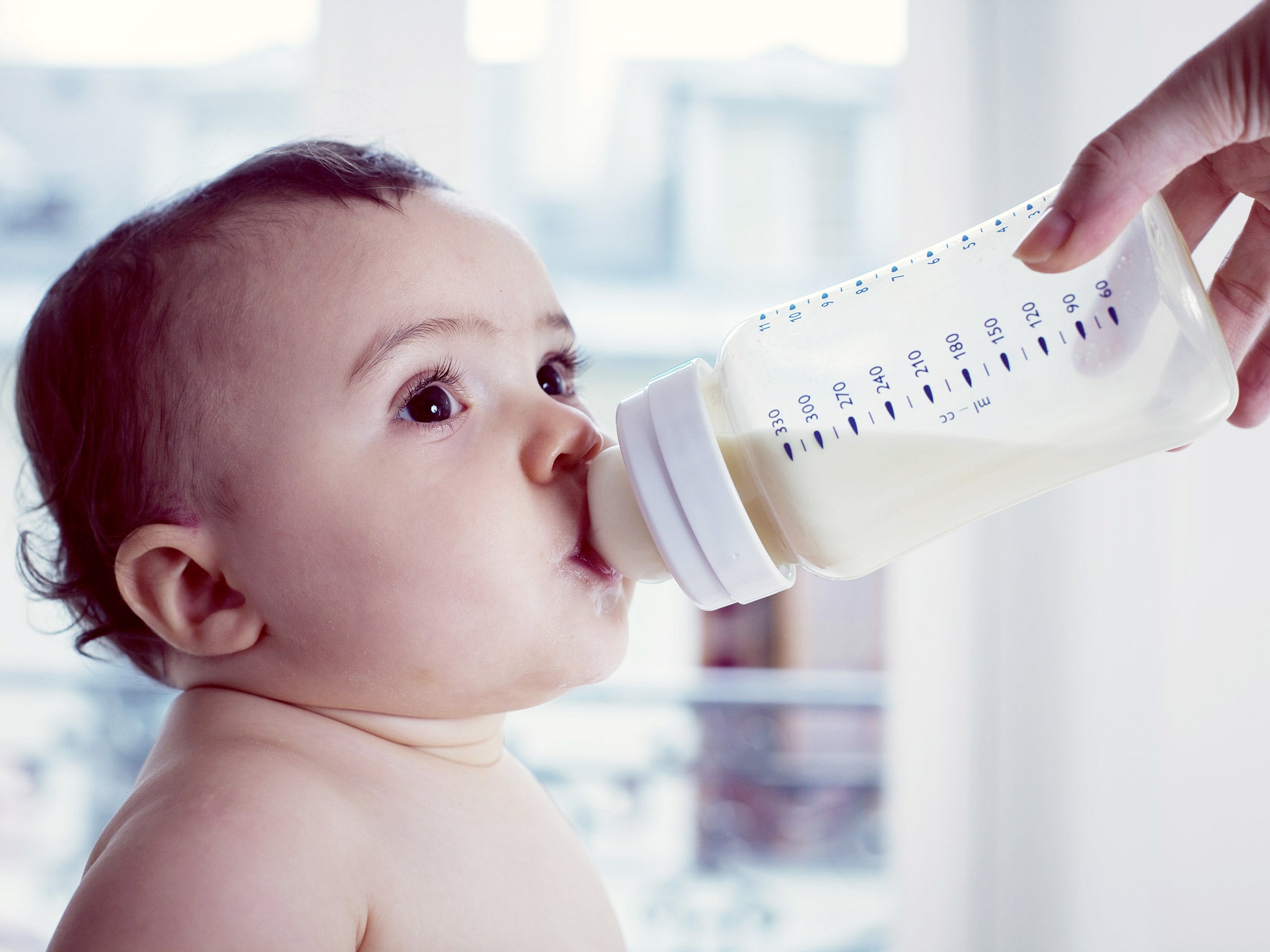Thousands of babies ‘being wrongly diagnosed with milk allergies’
Researchers say over-diagnosing cow’s milk allergy is ‘unhelpful’ as real cases could be overlooked

Doctors are wrongly diagnosing thousands of babies with milk allergies, according to new research.
Three-quarters of around 1,300 babies from England and Wales involved in the study were found to have shown two or more “symptoms” of a milk allergy by the time they were a year old.
Such symptoms can include excessive crying, regurgitation of milk, skin rashes, diarrhea, constipation, and eczema flares – but researchers say these are generally common ailments among infants and the prevalence of them makes the actual allergy difficult to pinpoint.
Only one per cent of babies have a milk allergy and the condition is often overdiagnosed, researchers said in their findings, published in the journal Clinical & Experimental Allergy.
The study found that a quarter of parents reported that their babies had two or more possible “mild to moderate” symptoms every month.
Symptoms were most numerous at three months of age - when all the babies in the study were exclusively breastfed.
At six months of age, there was no difference in the number of infants with two or more symptoms between those consuming and not consuming cow’s milk.
The findings were based on questionnaires in which parents reported on their infant’s general health and consumption of foods every month until the baby was one year old.
The majority of symptoms listed in cow’s milk allergy guidelines are common, normal and not caused by an actual milk allergy, the findings suggest.
The study’s lead author Dr Rosie Vincent said: “We evaluated the prevalence of guideline-defined milk allergy symptoms in 1,303 infants.
“Guidelines may promote milk allergy overdiagnosis by labelling normal infant symptoms as possible milk allergy.”
She added: “There is an assumption the existence of a guideline is more beneficial than no guideline.
“However, well-meaning guidelines need to be supported by robust data to avoid harms from over-diagnosis that exceed the damage of missed and delayed cow’s milk allergy diagnoses that they are seeking to prevent.”
Senior co-researcher and children’s allergy doctor, Dr Michael Perkin, from the Population Health Research Institute at St George’s, University of London, added: “Incorrectly attributing these symptoms to cow’s milk allergy is not only unhelpful, but it may also cause harm by discouraging breastfeeding.”
There are two distinct types of cow’s milk allergies in children: IgE mediated and non-IgE mediated.
IgE mediated allergy often occurs within an hour of an infant’s first exposure to milk such as natural yoghurt, formula milk or as an ingredient in baby cereal. Non-IgE mediated allergy occurs more slowly.
The researchers are from the University of Bristol, St George’s, University of London, Imperial College London, King’s College London, and St John’s Institute of Dermatology.
Join our commenting forum
Join thought-provoking conversations, follow other Independent readers and see their replies
Comments



Bookmark popover
Removed from bookmarks